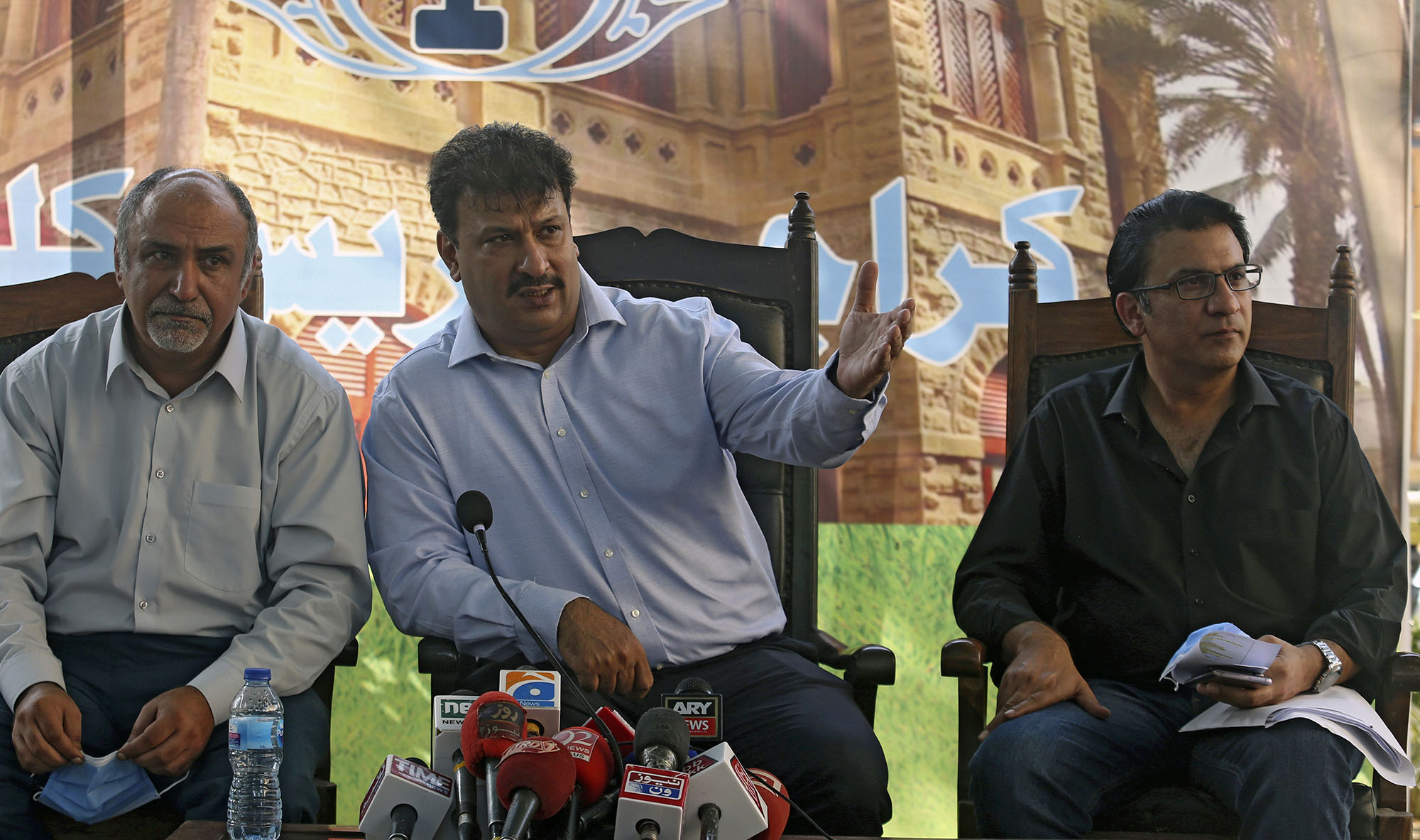KARACHI: The chief of Pakistan International Airlines (PIA) and a national union of pilots on Saturday questioned an Aviation Division list which named over a hundred of the airlines’ pilots as having ‘dubious’ flying licenses, saying it contained “serious anomalies.”
A spokesman for PIA said on June 25 the airline would ground a third of its 434 pilots on suspicion that they held “dubious” licenses and flying certificates, prompting concern from international safety and transport bodies.
Pakistan’s Aviation Minister Ghulam Sarwar Khan said on Friday the government had asked various commercial airlines, flying clubs and charter companies to ground a total of 262 pilots until investigations into their qualifications were completed.
The action was prompted by a preliminary report on the crash of a PIA aircraft in Karachi last month, which found pilots had failed to follow standard procedures.
In a letter dated June 27, and confirmed as authentic by a PIA spokesperson, PIA CEO Air Marshal Arshad Malik ensured that pilots named in the Aviation Division letter had been grounded.
“However, it is highlighted that there are some serious anomalies in the said list with respect to names of pilots, airline they are serving, reference number, and personal numbers of the pilots mentioned,” Malik said in the letter.
A Pakistani pilots’ union has also questioned the Aviation Division’s list, calling it an attempt to divert attention from the deadly crash of a PIA airliner that killed 97 people on board last month, and which a preliminary investigation had blamed on human error.
In a presser on Saturday, the Pakistan Airline Pilots Association (PALPA) president said the list of suspect pilots was meant “to defame pilots and divert attention from the air crash.”

Captain Chaudhry Salman, center, President of Pakistan Airlines Pilots’ Association addresses a news conference with others in Karachi on June 27, 2020. (AP)
“Thirty-nine pilots in the list are not associated with PIA, the data of 36 others is completely wrong, whereas the cases of six pilots are pending in the court,” PALPA president Captain Chaudhry Salman told reporters at the Karachi Press Club. “The authenticity of this list is suspected.”
The PALPA president said pilots had received no warnings before the Aviation Division grounded them: “No show-cause was ever issued to the pilot. This clearly shows that PCAA and PIA have completely failed.”
Pilot licenses are assessed by the Pakistan Civil Aviation Authority (PCAA) every six months, Salman said, adding that to date all but 17 pilots on the list had valid licenses.
“We challenge this list with highly questionable and unrealistic content and urge upon the Chief Justice to form an inquiry commission and suspend the officials at Pakistan Civil Aviation Authority (PSAA) and PIA,” Salman said.
The Aviation Division says it stands by its list.
Abdul Sattar Khokhar, joint secretary of the Aviation Division, said the released list was correct.
“All 141 pilots in the list have been found to have suspect licenses,” Khokhar told Arab News, adding that it was possible one or two of the pilots named in the list used to fly with PIA but had since moved on to other airlines.















